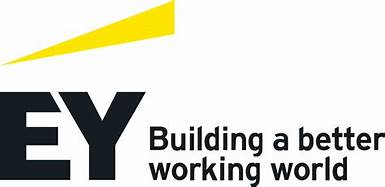Ireland’s economy ends 2021 on a stronger platform for growth than was projected, despite the economic and societal headwinds of the past 21 months, according to EY Ireland’s Economic Eye report. The remarkable labour market performance and stronger than expected tax receipts reflect a combination of swift policy response and a resilient and adaptable business base. However, the sustained high COVID-19 case levels, rapidly rising inflation, a tight labour market and the reintroduction of restrictions on hospitality and travel present strengthening headwinds for the remainder of Q4 and into the new year.
The ingenuity and resilience demonstrated by business across the island of Ireland will be required again as further challenges emerge in 2022. A combination of rising prices, talent shortages, a need to move more urgently on environmental matters and the persistence of COVID-19 suggest economic growth will be hard-earned.
Commenting on the report EY Ireland Chief Economist, Professor Neil Gibson said, “The economic data for the third quarter of this year suggests a labour market that has bounced back to its pre-Covid levels in aggregate with stronger than expected outturns across many key indicators. This was possible through a strong policy response, adaptability of businesses and a resilient workforce. However, further restrictions and the reintroduction of policy supports mean that uncertainty levels are higher than anticipated heading into the new year.”
The performance of the labour market is perhaps the most remarkable feature of the pandemic recovery, with only two sectors more than 2% below their pre-pandemic employment levels in Ireland. Combined with data on wage levels and vacancies, it paints a very competitive picture for firms in 2022. Migration levels remain constrained, and the pool of domestic labour supply is shrinking. Businesses will have to look at new sources of talent, technological responses, and new ways of working to attract and retain the talent they need.
EY Ireland Head of Markets, Graham Reid commented, “Talent is the top business issue as we enter the final month of 2021. Businesses will have to think creatively to attract and retain top talent which may mean offering different types of contracts, blended working locations, and a renewed focus on core values. Wage pressures will likely ramp up in 2022 as the labour market tightens and employees gain more choice.”
The headwinds of prices and labour shortages are partly a function of the resilience of the Irish economy, but they are likely to dampen growth somewhat. EY expects inflation to average 3.3% in 2022, and to remain above the low levels experienced in the last five years thereafter. In a higher inflation scenario, EY projects inflation of 4.5% in 2022 and a long-term rate of 3.0%. This scenario assumes the recent trend of elevated prices continues into the first half of 2022, with sustained wage inflation, higher energy prices and an increased costs of consumer goods due to new standards and policies.
While the overall economic picture is one of a bounce back, the experience of the pandemic has been vastly different across various cohorts of society. In particular, the hospitality and arts sectors face renewed job and business uncertainty following the latest COVID-19 restrictions in the run up to what is typically a very busy period. The current period of sustained high inflation will also impact those on lower incomes disproportionately as staples such as food and fuel become less affordable.
Sustained high levels of uncertainty make it increasingly important for businesses to scenario plan to ensure they are equipped to deal with a broad range of outcomes. Perhaps it is time to ask whether many long-held macro assumptions are still valid. Will inflation and interest rates be forever low, will labour always be readily available, and will governments always be able to borrow what they need to support the economy? However broad and deep the risk register, we will always need the flexibility, agility, and resourcefulness to pivot and deal with the unforeseen.
Neil Gibson added, “A key lesson from the last 21 months is that many long-held macroeconomic assumptions are now open to challenge. The economic environment is changing, and we cannot assume tomorrow looks, or behaves, like yesterday. For this reason, it is important to celebrate success when it comes and use the skills and resilience built up to help turn challenges into catalysts for growth.”


